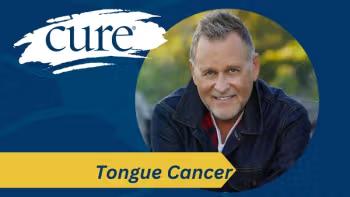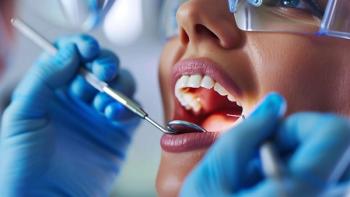
The Day a Spot Turned Into Cancer
SCOTT WIESKAMP KNEW THE spot on his tonsil wasn’t normal.
SCOTT WIESKAMP KNEW THE spot on his tonsil wasn’t normal. Luckily, he had an appointment to get his teeth cleaned the following week. His dentist agreed that the spot looked unusual and recommended he see an ear, nose and throat (ENT) doctor. A family friend, who happened to be an ENT, took him that week.
“He felt around, felt my neck. I didn’t see the lymph node bump, but he felt it,” Wieskamp says. “He ordered several biopsies and tests over the course of about 10 days. Within a couple of days, he called me and said, ‘You’ve got this HPV fast-growing cancer, and we need to get after it.’”
HPV is the most common sexually transmitted virus in the United States, according to the National Cancer Institute (NCI). Of the more than 200 different strains of the virus, most are harmless, with only nine known to cause cancer, according to The Oral Cancer Foundation. About 70 percent of oropharyngeal cancers arise from HPV, and nearly half of these are linked to HPV type 16. That type is also linked to cervical, anal and penile cancers.
Approximately 79 million Americans are infected with HPV, says the Centers for Disease Control and Prevention, and of those infections, an estimated 2,600 are caused by HPV 16, which does not guarantee oral cancer, because most people will clear the virus through their immune system.
“They say it can be in humans for years,” Wieskamp says. “I’ve been married for 30 years, dated my wife for four years before that, (and have) been a faithful husband, and she’s been a faithful wife. It could have been initiated 34 or more years ago.”
HPV-related head and neck cancers are usually treated with radiation, according to Deborah Saunders, D.M.D., B.Sc., president-elect of the International Society of Oral Oncology and medical director of the dental oncology program at Health Sciences North/Horizon Santé-Nord in Ontario, Canada. “Those patients tend to have more side effects from the radiation than someone who is having radiation from another site,” she says.
Wieskamp received his head and neck cancer diagnosis in May 2017, when he was 58 years old. He started treatments in early June, beginning 39 doses of radiation Monday through Friday and three doses of chemotherapy every three weeks. “Three weeks into the treatment, I quit eating due to taste and pain,” Wieskamp says. “I was admitted into the hospital and had a feeding tube put in, which I used for approximately four months.”
Although he had excellent insurance, including dental, through his job in Lincoln, Nebraska, where he manages the buildings in the school system and his wife is the athletic director, Wieskamp says, he was never referred to an oncologic dentist and has yet to be.
Long-term results of such radiation treatment include dry mouth and distorted taste. Saliva glands and taste buds are virtually destroyed in the area treated with the radiation. “Baby steps over several weeks allowed me to work at drinking water and eating soft foods again,” Wieskamp says. “I needed a speech therapist to work with me post treatment to learn how to swallow again. All along, the doctors were on me to gain back the 15 pounds that I had lost. (A) difficult task when you have no desire to eat due to taste and pain.” The situation made it hard for Wieskamp to think about his teeth. “It is the intensity. It’s the oncologist that gives the information,” he says. “They say, ‘Look, don’t put off any kind of dental work you know you are going to need. You need to go right now, before we start, and get that done.’ But you are worried about dying, not your teeth.”
Wieskamp dealt with a dead tooth, and the doctor wanted him to wait, since a tooth with a destroyed root is somewhat spongy and often difficult to remove. “The doctors want me to go as long as I can with this condition before they remove it,” he says. “The determining factor could be whether the tooth gets infected.”
Since his diagnosis, Wieskamp has become a vocal advocate for the HPV vaccination. He made sure both his sons received it, and he speaks openly about the need for parents to understand what it is and what it will and will not do. “I think that’s the misnomer that parents are having,” Wieskamp says. “It’s a choice vaccination, and I think they believe that if they vaccinate their kid that it allows them to be promiscuous.”
HPV vaccines are highly effective in preventing infection with the types of HPV they target when given before initial exposure to the virus, according to the NCI. The Centers for Disease Control and Prevention recommends that children aged 11 and 12 receive the vaccination twice, six to 12 months apart. Teens who start the vaccinations on or after their 15th birthday will need three shots given over six months.
Since his diagnosis in 2016, Wieskamp has become active in his local chapter of Support for People With Oral and Head and Neck Cancer, more commonly known as SPOHNC. The national nonprofit organization focuses on preserving, restoring and promoting the physical and emotional health of those with head and neck cancer.


